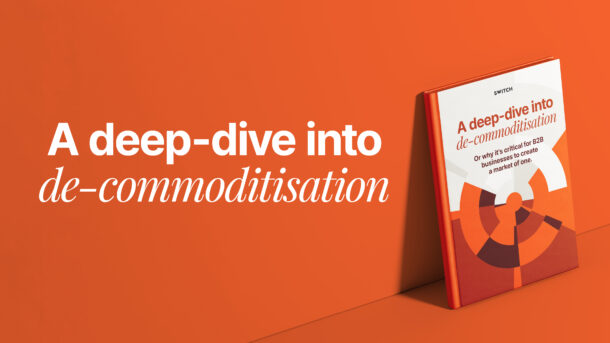Trust is what differentiates a stagnant business from a growing business – and it’s quickly becoming one of the only ways that your business can reach the next level.
In an increasingly divisive world, where massive global issues are affecting consumers’ livelihoods, the last bastion of trust lies with businesses. Over 62% of global citizens consider businesses as the most worthy of trust – but this doesn’t mean that they’re going to trust your brand, especially if you haven’t put in the effort to generate that credibility.
Building credibility and trust as a business should be one of your first priorities. This is especially true for tech businesses, an industry in which bad news travels uncannily fast. Tech has the problem of a sector which is both plagued by bad operators and also can be impenetrable to the outsider. One negative experience can quickly affect the way people think about all tech companies across the board, no matter if you have something to do with that aspect of the industry or not. Just think of what happened when the Cambridge Analytica scandal came to light, and you’ll understand how important generating trust for tech should be.
However, there’s a caveat.
Trust is not a value you can hard-code into your brand. Trust is earned. Trust takes time to build. Trust can be easily lost. Simply saying that your brand is trustworthy won’t make people trust you.
It takes proof.

Why do I care if my clients trust me or not if they still provide me with business?
If your clients provide you with business for now, it’s not necessarily a guarantee that they’ll stay with you. Businesses of any size are not infallible, and while it’s hopeful that your business won’t go through a scandal, the truth is this: businesses go through scandals. Something, no matter how big or small it is in the great scheme of things, will come to light that will affect the way that your consumers look at you, and that means that you need to prepare for the eventuality that you will lose business as a result of this.
Trust mitigates a lot of the risk of losing business.
Having clients that trust your business means having clients that understand that, sometimes, bad things just happen, and that you can take steps to rectify it and make sure this will not happen again. Clients who trust you will keep coming back to you, even if it’s a service you’re not strictly advertising. Clients who trust you will recommend your business to their friends.
Consider the Net Promoter Score.
The Net Promoter Score is a metric that measures customer loyalty. A high NPS is worth its weight in gold, and outweighs any money you spend on marketing – and earning trust will go a long way towards building high NPS. Having a high NPS also has other benefits: it’s not only cost-effective, it’s a growth strategy that pays indefinitely – provided you maintain that same level of trust for your consumers.
Clients who trust you won’t look at the one negative review out of thousands and turn away from purchasing your products and services. Clients who trust you have the personal experience that they need to make that decision without relying on external factors or additional reviews.

How do I build that trust and credibility?
It takes time to build up your company as one to trust, but it’s worth the effort and the time you take into making your company a trustworthy company.
Bear in mind that trust is built, not bought. Trust is a result of your actions and the way you treat your consumers. Trust is what you value. If you understand that as a first point, the rest will become far easier to implement.
Maintain consistent results.
This is true for every business, and it’s true for every tip on this list: you need to maintain the same results as when you started, or improve on them. This makes you reliable, which makes you more trustworthy, which makes clients more likely to sign on.
Explain the way you work.
Tech is a business that has a tendency to be difficult to understand, and making sure your client understands and taking the extra time to really drive that understanding home will make a big difference in whether or not your client will come back for repeat services.

Put testimonials on your site.
Tech is expensive to invest in, particularly for small businesses, and so having proof of the positive experiences your clients have is important. More importantly, reviews from other consumers matter – and it’s far more likely for your customers to go looking for other peoples’ opinions before they take the plunge and make a purchase from your business.
Rectify mistakes immediately.
Listen, it happens: sometimes you plan for an outcome and the unintended happens. Tech has an undeserved reputation for being purposefully difficult to fix, so be the outlier and make sure any mistakes made, regardless of whose fault it is, are fixed immediately.
Use your platform to showcase your thinking.
Clients might not fully understand what you’re talking about, but thought leadership is important: not only does it show that you’re up to date, but it also shows that you have opinions on what’s happening – you’re a thought leader. This is crucial in tech’s fast-changing environment, particularly if you know your clients will immediately want to try whatever new technology is coming to the market.

Whether this is a business, an app, or a LinkedIn profile, you should have a place online where any potential client can see what you do, how you do it, and the way you do things differently. This will let the client get to know you before they’ve even formulated what they want out of your business, and might make it easier for them to take the final plunge into contacting you.
Treat every client like a new client.
It happens to the best of us: once you get comfortable with a client, things can get a little more relaxed, which isn’t a bad thing – however, maintaining that professionalism in the face of friendliness is even more critical when you’re familiar and friendly with your client, as it limits the risk that things get pushed back unnecessarily.
Building trust isn’t a race: it’s a process, a long one, that takes time and effort to get right – but the rewards are more than worth the initial work you put into it.




